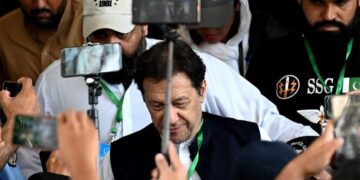BY : Kim Min-ho.
(Former North Korean Military Officer, Served as a Soldier and defected in search of freedom in 2020 and now living in South Korea)
North Korea: Recently, Kim Jong-un proposed a “Two Hostile States Theory” that denies national unity and reunification, and he also amended the constitution to solidify this sentence. He has not only built anti-tank barriers and planted mines in the Demilitarized Zone(DMZ) to block North Korean’s escape routes but has also demolished symbols of inter-Korean cooperation, such as the Donghae and Gyeongui railway lines, creating instability on the Korean Peninsula.
During my time in the military, I personally endured the hardships of severe food shortages and the crushing weight of daily survival. North Korean citizens are suffering from severe food shortages due to repeated floods and economic hardships under Kim Jong-un’s abnormal rule. The situation within the North Korean military is no different. Meals are limited to corn and wheat, sometimes amounting to just three to four spoonfuls, leading to widespread malnutrition and a rise in illnesses such as hepatitis or to drive some soldiers to the point of death. And North Korean soldiers are also exposed to extreme conditions with inadequate clothing. Throughout their mandatory ten-year military service, soldiers receive a maximum of three sets of uniforms. Ill-fitting shoes are common, and due to a lack of proper clothing supplies, many soldiers resort to stealing civilian clothes to survive.
External information shocks soldiers enduring these harsh military conditions. I have seen the contents of anti-regime leaflets from South Korea, which revealed the luxurious lives of the Kim family. What began as skepticism tumed into a deep sense of betrayal as I realized the leader had deceived the people.
Young soldiers are especially sensitive to these leaflets and broadcasts. Those born after 1990, the generation who lived through North Korea’s worst food crisis and grew up in the unofficial markets, known as the “Jangmadang Generation,” now make up a significant portion of the military. For them, survival and overcoming hunger are top priorities, and loyalty to the state is naturally weak. Moreover young soldiers from the Jangmadang Generation dance to K-pop and enjoy South Korean clothing and mannerisms, reflecting the reality within North Korea today. In July, South Korea’s Ministry of National Defense resumed broadcasting anti-regime messages, and within a month, a North Korean citizen defected by walking across the border.
In the future, the Jangmadang Generation will become the mainstay across all areas of North Korean society. No matter what measures Kim Jong-un takes to correct the ideology of these young soldiers or block the influx of South Korean culture into the military, he will never fully control them. We must continue to provide North Korean soldiers with information on the luxurious lifestyles of the Kim family, the corruption of the elites, the real differences in living conditions between the two Koreas, and possible escape routes. Just as East Germans toppled the Berlin Wall, the day will come when the young soldiers’ yearning for freedom and resistance will tear down the walls Kim Jong-un has so carefully built.

















